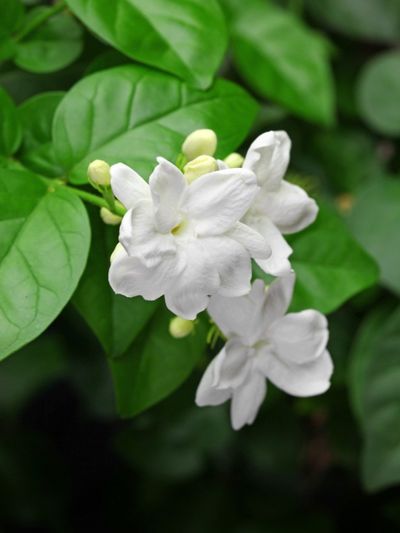What is Sambac Jasmine?
From early spring throughout summer, jasmine plants will begin to produce a profusion of petite white blooms that open at sunset. Intensely aromatic, Arabian jasmine plants are ideal for use as potted plants and in borders near sidewalks and porches where passersby can stop to enjoy their scent. Also known as sambac jasmine, Arabian jasmine flowers are hardy to USDA zones 9-11. Since the plant’s size and shape can be easily manipulated, many gardeners ask, is Arabian jasmine a vine? As a vining plant, the low growing flower can reach lengths of up to 10 ft. (3 m), but is often pruned to maintain a more compact size.
Growing Arabian Jasmine Outdoors
Growing Arabian jasmine outdoors will require that gardens are frost free throughout the entire year, as exposure to cold temperatures can severely damage the plants. Site selection will also be of great importance. Gardeners should plant in a well-draining garden bed that receives part sun and bright, indirect light for most of the day. Though Arabian jasmine plants can tolerate a range of soil conditions, flowers will perform best in those which have been amended with a high quality finished compost. Once established, care for Arabian jasmine plants is minimal. In fact, this jasmine is resistant to most issues related to disease and insect pressure. Those growing Arabian jasmine outdoors should consider routine fertilization and irrigation throughout the months of active plant growth. Watering will be especially necessary in regions which may experience prolonged periods of high temperatures and/or drought. With little care, even novice growers will be able to enjoy an attractive jasmine landscape planting season after season.
